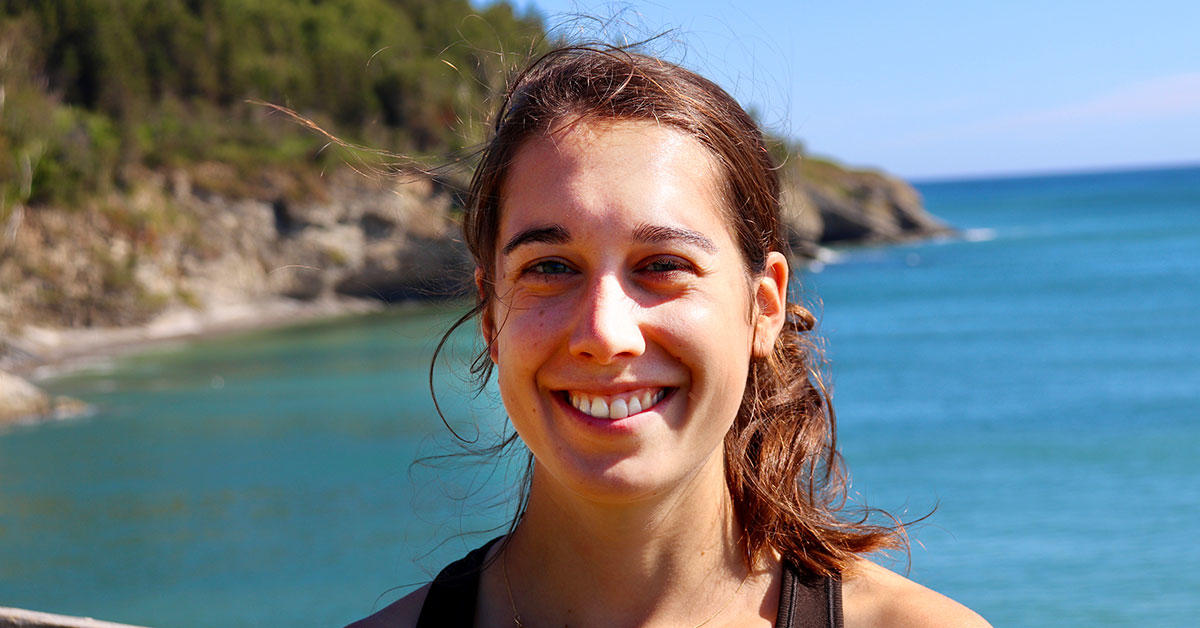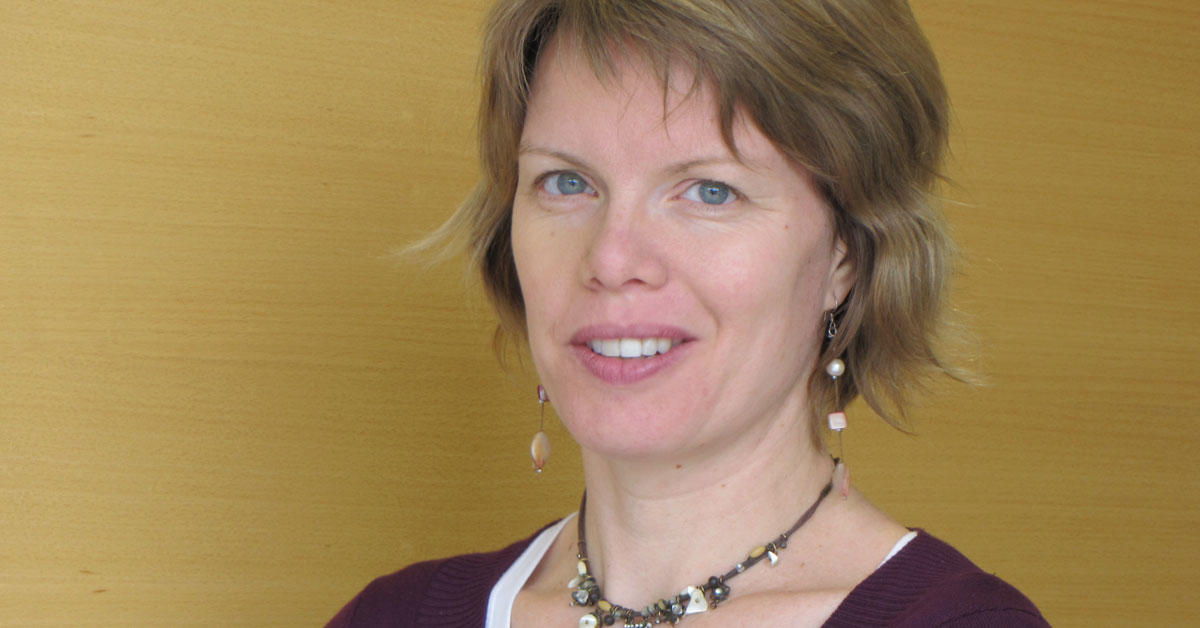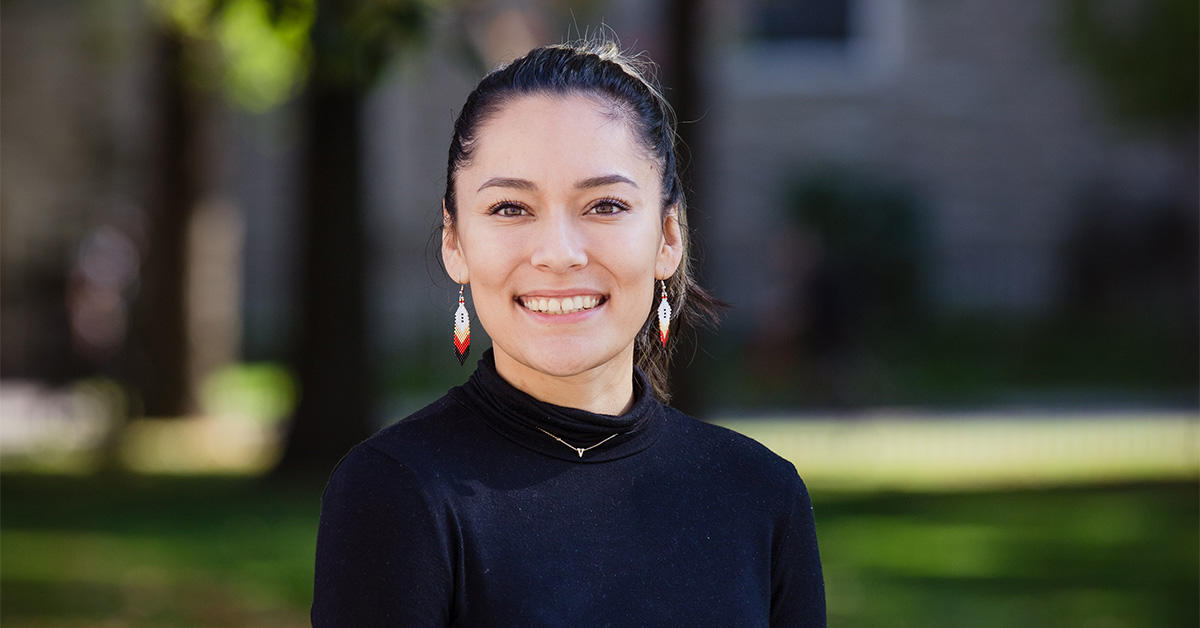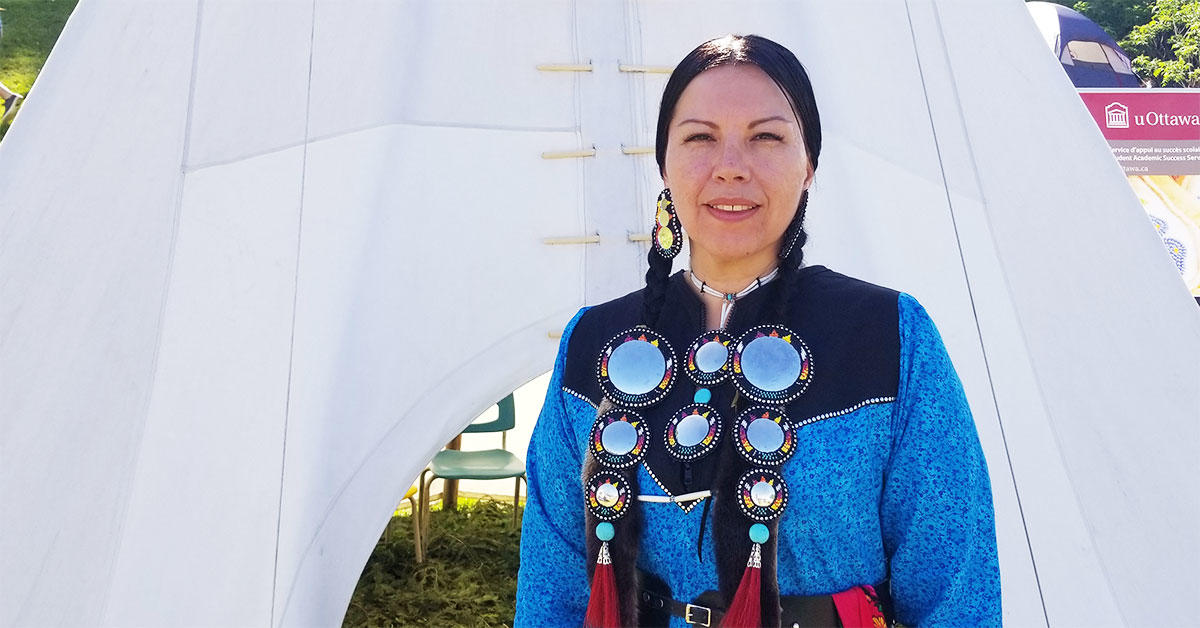
“My father is a residential school survivor,” says Mona Tolley, an Algonquin Anishinabekwe educator from the Kitigan Zibi First Nation and a curriculum developer with the Cree School Board. “My father is one of the strongest people that I know. I was lucky that he was able to speak to me, teach me about what happened. It helped me understand some of the issues we had in our relationship and it helped me recognize that these things are not about me, but about the things that he didn’t get to learn.
“Some of the behaviours that he picked up were the result of being in those schools. It helped me understand him as a person and as a learning individual. That was very important in shaping my own identity and confidence. That’s one of the reasons I became an educator. The impacts of residential schools are so diverse, interconnected and far reaching, and learning about it is so, so needed. It is only fair that Indigenous students get an opportunity to learn their ways of knowing and doing, through their own Indigenous pedagogy.”
Tolley is one of two new Indigenous curriculum specialists working with the Faculty of Social Sciences at uOttawa. Over the next year, she and Catherine Dussault, a member of the Wendat community in Quebec and a PhD student in sociology at Université Laval, will help professors incorporate Indigenous content and teaching practices into their courses in order to create a more open and inclusive learning environment for Indigenous students.

“When I touch base with my former students who have moved on to college, university or started their careers, their observations about postsecondary education are still very similar to the ones I had when I was in university many years ago, which is that they wished they had more First Nations or Indigenous professors, that there were more programs or more content about their own understanding of the way the world works,” says Tolley. “I know that there has been change and positive progress in this area, but I also know that we have a long way to go in terms of creating a space that will value and grow other holistic approaches and ways of knowing.”
“This initiative is about revitalizing Indigenous knowledge,” says Dussault. “Colonization has had devastating effects on Indigenous people, so it's important that we create the conditions that will allow them to regain confidence in their knowledge and in their ability to generate new knowledge. Cultures are constantly evolving and Indigenous ways of knowing should be no exception.
“Plus, Indigenous people are one of the fastest growing population groups in Canada. In order for them to access important positions in our society, our efforts must first target Indigenous students. We must ensure that their learning environments are inclusive and respectful of their cultures.”
The initiative to Indigenize (or decolonize) the curriculum at the Faculty of Social Sciences is a joint venture between anthropology professor Karine Vanthuyne, the new chair in university teaching, the faculty’s Indigenization and decolonization committee, uOttawa’s Indigenous Affairs section and the Mashkawazìwogamig Indigenous Resource Centre.
“The goal of this project is to make professors aware of the importance of Indigenizing their courses, why there is a moral choice to be made, and for those who don’t know, to teach them that the University of Ottawa was part of the system of assimilation and colonization of Indigenous peoples,” says Vanthuyne. “The university’s Oblate fathers taught the priests who went on to administer the Indian residential schools. So, it’s our moral obligation, if we want to be part of the work of reconciliation with Indigenous peoples, to contribute to this decolonization movement, to question white privilege and Eurocentrism in our disciplines, to make space for Indigenous actors, to rebalance the power relationships and to engage in a genuinely pluralistic approach.”

In her role as chair in university teaching, Vanthuyne will be in charge of documenting the Indigenization process at FSS and presenting other faculties with strategies and best practices for decolonizing their programs.
“It might seem simple to Indigenize a history or anthropology course, but if you read the Indigenous Action Plan, which officially launched last June, there are also examples of an Indigenized curriculum in engineering, geography and environmental studies,” she says. “That could mean teaching how to build a kayak or a canoe, or learning about hydrology, plant and animal life, and water conservation from Indigenous knowledge holders. These examples of curriculum value the knowledge that existed well before the settlers’ arrival.”
“Part of Indigenizing the curriculum is also redefining our understanding of an ‘expert,’” says Victoria Marchand, coordinator of the Mashkawazìwogamig Indigenous Resource Centre, who helped get the project off the ground. “Having a master’s or a graduate degree — that’s not necessarily how we define expertise because we base our values and our knowledge off of the land and off of our connections with one another and with community.”
Vanthuyne and Marchand are also part of a cross-faculty decolonization working group aimed at breaking down the silos and easing the burden for the University’s Indigenous community. The University’s Teaching and Learning Support Services (TLSS) is also looking to hire an Indigenous curriculum specialist to further support professors.
“Some faculties are farther along than others, so we’re trying to close the gap on that by allowing them to mentor each other, see what works and why, and tweak it to their own environment,” says Marchand. “The Indigenous Resource Centre is there to consult, provide feedback and ensure it’s a safe space for our members.”
On another front, the Indigenous Law Students Association recently put forth a motion requesting the right to be recognized as a self-governing body. The motion, which passed with tremendous support on November 12, validates Indigenous law as one of the three branches of Canadian law and allows the Indigenous Law Student Government, as it is now called, to govern itself according to Indigenous legal traditions and laws.
